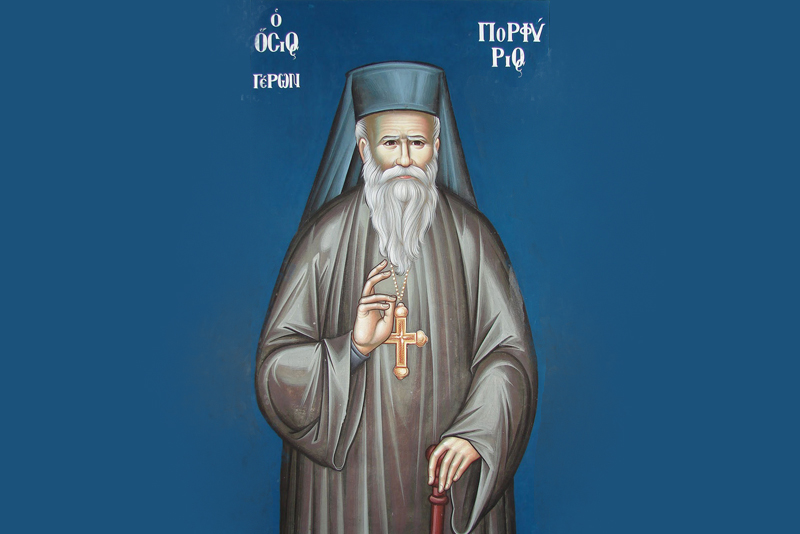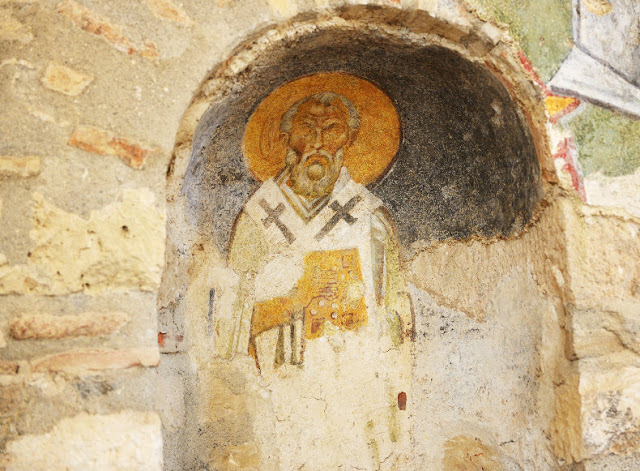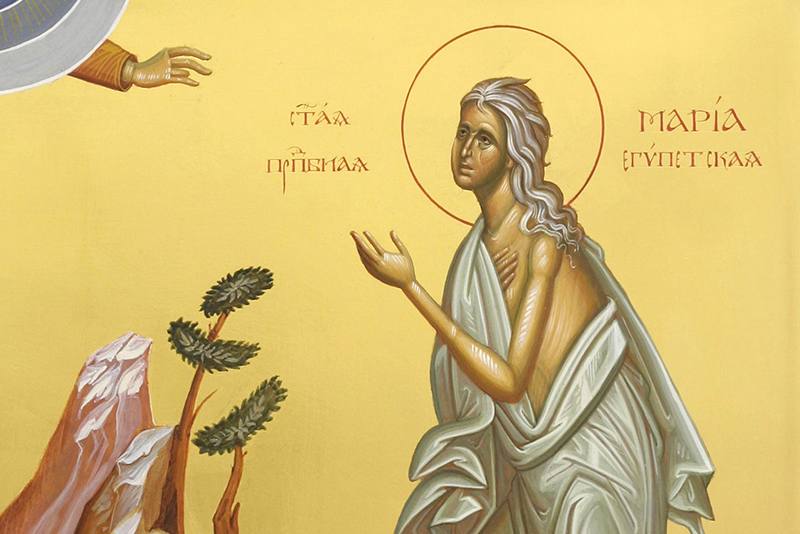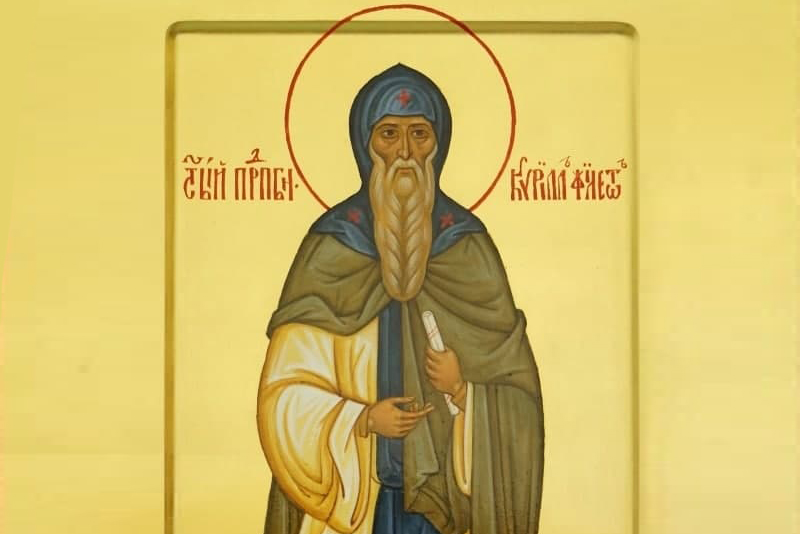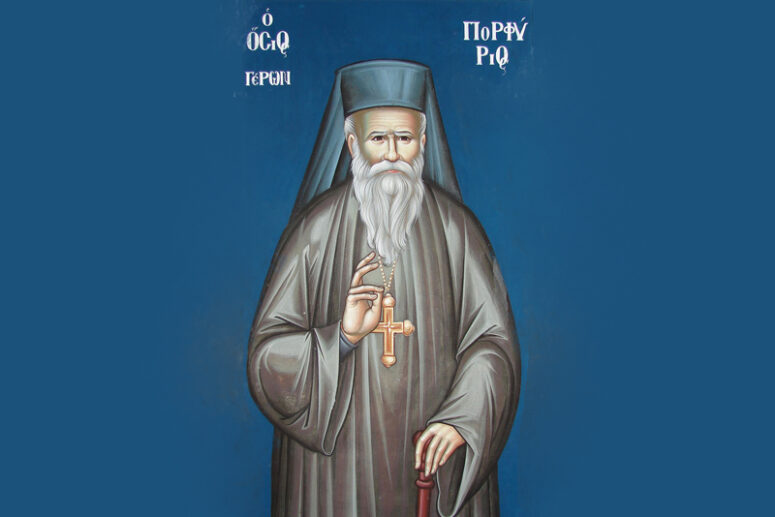
Spiritual writer Pavle Rak shares his memories of the elder whom he and his family knew in person.
Let me start with a story related to me by a doctor named Piperakis, as I was staying with him in his flat in Athens. He shared it with me a day or two after he met with the elder. Piperakis spoke of his mother. I do not remember all the details, but he made it clear that she was seriously ill. Because she was the mother of a professor from the faculty of medicine, they were taking great care to look after her well. One night, as Piperakis was asleep, his telephone rang. The hospital was calling. The caller was sympathetic. He brought the bad news that his mother had died despite all the doctors’ efforts, offered his condolences and did his best to give consolation. Piperakis went to the hospital immediately. He was met at the gate by elder Porphyrios. He hugged him and said: “It is going to be all right, Yorgo!” “He is being sympathetic, too,” thought Piperakis. Together, they walked up to his mother’s ward. There, they saw a crowd of doctors and nurses at her bedside. They were having a lively conversation with the woman who had supposedly died half an hour before. All were relieved. Apologies for the late-night call were unnecessary. It did not matter any more. All was well. But when the joyful Piperakis turned around to find the elder, he was not there.
Later, the elder explained, apologetically, that it was too early for her to die. She needed several more years to repent, which she did eventually.
The second story was related to me by a nun from the Monastery of the Annunciation on Patmos Island. The elder had never been on Patmos Island in his life, but he knew Father Amphilochios, the founder of the monastery. He had a spiritual connection to him through prayer. The monastics kept the connection after the death of Father Amphilochios. One day, they found that were left without any water because their water well had dried out. Anyone familiar with the great value of water in arid lands will appreciate the scale of the calamity. The nuns wrote a letter to Elder Porphyrios and asked him for his prayers. In his reply, he told the nuns not to expect the water to return, but to look instead towards the sea and find a fig tree some forty meters leftward. They should dig under the tree, and they would reach water if they dug deep enough. They did as the elder told them, and they had water.
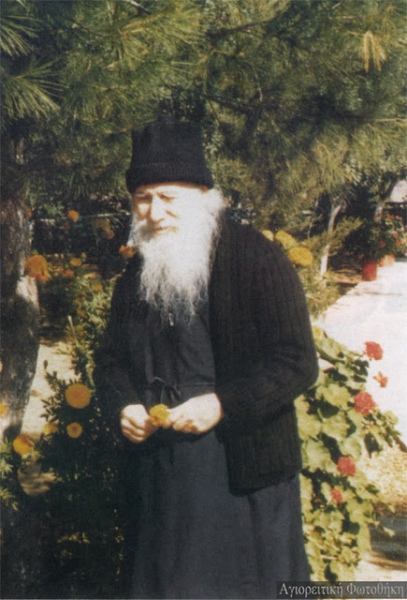
Lastly, let me recount the story of a priest from Mount Athos, a Serbian monk. He was a representative of the Hilandar Monastery at the Lera Koinotita, the governing body of Mount Athos. Hilandar Monastery is found in the North and East of Mount Athos, in the environs of Karyes. It consists of a large number of sketes and cells. The majority of the cells had been inhabited by Russian monks ever since the mid-19th century. By the mid-1960s many of the cells were empty, and the rest were occupied by sickly and infirm old monks cherishing the memories of the good old pre-revolutionary years and the splendour of the Russian monastery, its sketes and cells at that time. Many were living in abject poverty. Sometimes, they were taking out from their caches some gold roubles minted under the Tsar and exchanged them for the bare necessities. I mentioned my last visit with Elder Porfyrios in one of my conversations with the priest from Hilandar. That livened him up, and he shared with me this story. It happened while the elder was still residing on Mount Athos. An old Russian monk had just died in a cell in upper Kapsala, north of Kirye. When the last inhabitant dies, the cell and all the possessions therein must be returned to the monastery. It was rumoured that a cache of gold had been hidden somewhere in the cell or around it. “The monastery is always in need,” said the priest. This was especially true of Hilandar, as with the government in place in Greece at the time, its chances for getting help were very bleak. “I wish we could find the gold,” said the priest. But this was no easy task to look for gold in an old half-destroyed cell. They had looked everywhere when the priest finally went to elder Porfyrios to ask him for help. He was hopeful, as he was asking on behalf of the monastery, not for his own benefit. The elder’s advice was clear. He instructed the priest to look in the rubble near the well. They should lift the slab at the thickening of the wall, and take out the stone under it. They would find the gold under the stone hidden in a hole. “Do not look anywhere else. You will find nothing,” concluded the elder.
They found the gold exactly where the elder had told them.
Translated by The Catalogue of Good Deeds
Source: https://pravoslavie.ru/68818.html

